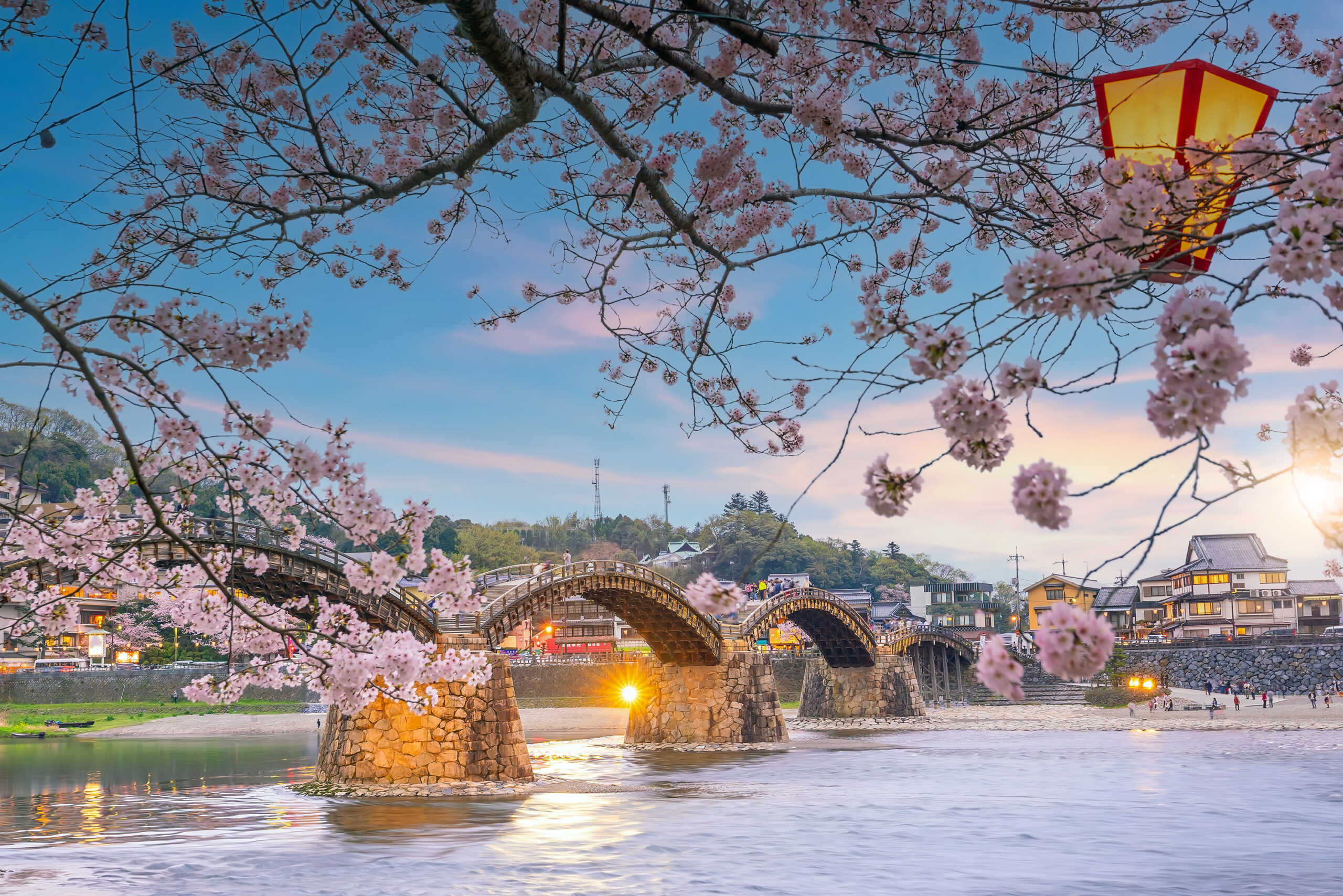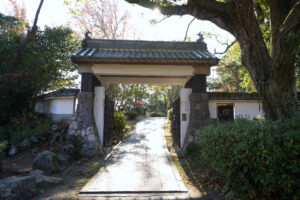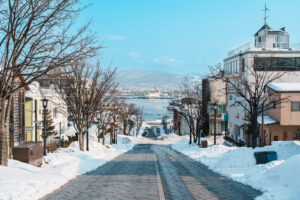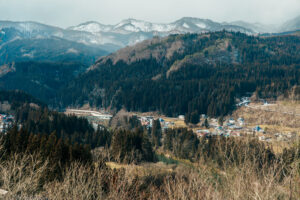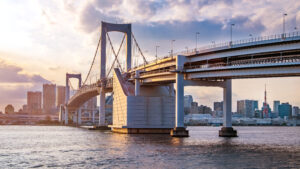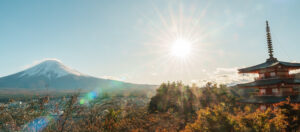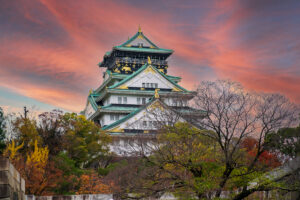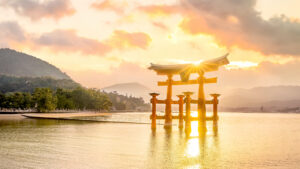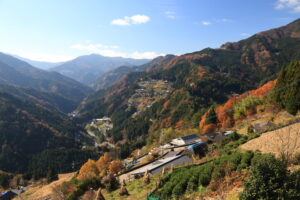Iwakuni, Japan, is a city that often flies under the radar in the bustling landscape of Japanese tourism. Nestled in Yamaguchi Prefecture, this picturesque destination is rich in history, culture, and natural beauty. While many travelers flock to the more famous cities like Tokyo and Kyoto, Iwakuni offers a unique glimpse into Japan’s past, making it a hidden gem worth exploring. From its iconic Kintai Bridge to its culinary delights, Iwakuni promises a compelling experience for anyone looking to immerse themselves in Japan’s cultural heritage.
Iwakuni: Exploring Japan’s Lesser-Known Historical Treasure
Iwakuni is a city that beautifully encapsulates the essence of Japan’s traditional and modern influences. Situated at the confluence of the Nishiki River and the Fuji River, it boasts a geography that is both breathtaking and historically significant. The city’s strategic location made it a focal point during feudal Japan, serving as a vital trade and military hub. Today, Iwakuni is a place where you can witness the seamless blending of ancient traditions with contemporary life.
While the likes of Hiroshima and Osaka may attract more tourists, Iwakuni’s charm lies in its understated nature. The city is home to a vibrant community that takes pride in its heritage and works diligently to preserve its history. Visitors are greeted with warm hospitality, allowing them to feel the true spirit of Japan as they explore the city’s attractions, ranging from historic sites to natural wonders.
Iwakuni presents an opportunity for travelers to delve deeper into Japan’s rich tapestry, away from the crowded tourist trails. The city has retained much of its historical architecture and cultural identity, making it a compelling destination for those interested in understanding Japan beyond the surface level. Whether it’s the tranquil parks, ancient bridges, or bustling local markets, Iwakuni invites visitors to engage with its past in a meaningful way.
The city’s relatively low profile has allowed it to maintain a traditional lifestyle that echoes the values of its ancestors. As you stroll through the streets, you can sense the echoes of history surrounding you—the whispers of samurai, merchants, and artisans who once thrived in this area. This atmosphere makes Iwakuni a refreshing alternative for travelers seeking an authentic experience of Japan.
In addition to its historical significance, Iwakuni is also a hub for cultural exchanges. The city has developed relationships with various countries over the years, particularly during the post-World War II era. These interactions have enriched its cultural landscape, resulting in a unique blend of local customs and international influences. You can see this fusion in its art, cuisine, and festivals, which are integral to the city’s identity.
Ultimately, Iwakuni stands out as a hidden treasure waiting to be discovered. It offers an intricate web of history, culture, and natural beauty that captivates those who venture off the beaten path. For anyone looking to deepen their understanding of Japan, Iwakuni presents a perfect opportunity.
A Brief History of Iwakuni: From Samurai to Modernity
The history of Iwakuni can be traced back to the samurai era, a time when this city played a pivotal role in Japan’s feudal system. The Iwakuni domain was established during the early 17th century under the leadership of the Kuroda clan, who recognized the strategic importance of the region. The city quickly flourished as a center for trade and military activities, attracting samurai and merchants alike.
Throughout the Edo period, Iwakuni became known for its unique culture, including the development of local crafts and entertainment. The Iwakuni-dan (Iwakuni-style) art form, which encompasses various traditional crafts such as textiles and ceramics, gained prominence during this time. Visitors to Iwakuni can still witness this artistic legacy today.
The arrival of Western influences in the 19th century brought about significant changes in Iwakuni. The Meiji Restoration in 1868 marked the end of feudalism and the beginning of modernization in Japan. This transformation impacted Iwakuni as well, as the city adapted to new technologies and ideas. While the essence of its historical roots remained, Iwakuni embraced progress, incorporating aspects of modern life into its framework.
One of the most significant milestones in Iwakuni’s history was the establishment of the U.S. Marine Corps Air Station in 1950. This development not only affected the local economy but also transformed the city’s cultural landscape. The presence of American military personnel introduced new perspectives and practices, fostering a unique cross-cultural exchange that continues to this day.
Iwakuni’s historical journey is a testament to its resilience and adaptability. The city has managed to preserve its rich past while embracing modernity. This duality is evident in its architecture, where traditional wooden buildings coexist with contemporary structures, and in its festivals, which often blend ancient customs with modern celebrations.
In recent years, Iwakuni has gained recognition as a cultural tourism destination. This renewed interest has led to efforts to conserve and promote its historical sites, ensuring that future generations can appreciate the city’s heritage. Iwakuni’s history is not merely a collection of events; it is a living narrative that continues to evolve, inviting visitors to become part of its ongoing story.
The Iconic Kintai Bridge: A Marvel of Engineering
One of Iwakuni’s most recognizable landmarks is the Kintai Bridge, an architectural marvel that epitomizes the city’s historical significance. Constructed in 1673, this wooden arch bridge spans the Nishiki River and connects the city with the surrounding areas. The bridge’s design is both aesthetically pleasing and structurally innovative, showcasing the remarkable craftsmanship of the Edo period.
Kintai Bridge is renowned for its five elegant arches, which were designed to withstand the forces of nature, particularly the strong currents of the river during the rainy season. Its unique structure has made it a symbol of resilience, as it has endured various natural disasters, including floods and typhoons. Restoration efforts in the 1950s preserved the bridge’s original design, ensuring that it continues to be an iconic attraction.
Visitors to Iwakuni can walk across the bridge, taking in stunning views of the surrounding landscape. The breathtaking scenery, especially during cherry blossom season, creates a picturesque backdrop that attracts photographers and nature lovers alike. The bridge is also illuminated at night, enhancing its beauty and making it a popular spot for evening strolls.
In addition to its architectural significance, Kintai Bridge holds cultural importance for the local community. It serves as a gathering point for various festivals and events, where residents come together to celebrate their heritage. The bridge has become a symbol of unity for the people of Iwakuni, embodying their spirit and resilience throughout history.
The Kintai Bridge is not just a tourist attraction; it is a testament to the ingenuity and craftsmanship of the people who built it. The bridge’s historical significance has earned it a place on Japan’s list of Important Cultural Properties, further cementing its status as a national treasure.
For those visiting Iwakuni, the Kintai Bridge is a must-see landmark that encapsulates the city’s identity. Its beauty and historical significance provide a glimpse into Japan’s architectural evolution while inviting visitors to reflect on the enduring legacy of its creators.
Iwakuni’s Castle: A Glimpse into Feudal Japan
Iwakuni Castle, perched atop a hill overlooking the city, is another iconic landmark that offers visitors a chance to step back in time. Originally constructed in 1608 by the Kuroda clan, the castle served as a strategic military outpost during Japan’s feudal era. Although the original structure was dismantled in the late 19th century, a faithful reconstruction was completed in 1962, allowing visitors to experience a piece of Japan’s past.
The castle’s location provides breathtaking panoramic views of Iwakuni and its surrounding landscapes. A steep hiking trail leads visitors to the castle, offering a challenging yet rewarding experience. Along the way, hikers can enjoy the natural beauty of the region, including lush forests and scenic vistas that change with the seasons.
Inside the castle, a museum showcases artifacts and exhibits related to Iwakuni’s history, including samurai armor, weapons, and traditional clothing. These displays offer insight into the lives of the samurai who once roamed the city, highlighting their values, customs, and the importance of honor in feudal Japan. The castle serves as a cultural repository, preserving the legacy of those who came before.
Iwakuni Castle is also a site for various cultural events and festivals throughout the year. The cherry blossom trees surrounding the castle bloom in spring, attracting locals and tourists alike for hanami (flower viewing) picnics. The castle becomes a vibrant hub of activity, where people come together to celebrate the beauty of nature and their shared heritage.
Exploring Iwakuni Castle allows visitors to connect with the city’s rich history and appreciate the architectural prowess of the time. The castle stands as a reminder of Iwakuni’s strategic importance during the samurai era, as well as a testament to the enduring spirit of the community.
In a world that often overlooks its historical roots, Iwakuni Castle provides a tangible link to the past. Its preservation showcases the value of history in shaping identity, allowing visitors to reflect on the legacy of those who built and inhabited its walls.
Cultural Significance of Iwakuni’s Traditional Festivals
Iwakuni is home to a variety of traditional festivals that reflect the city’s rich cultural heritage. These events are not merely celebrations; they are a living manifestation of the community’s history, values, and artistic expressions. From the Iwakuni Kintaikyo Fireworks Festival to the Iwakuni Yamakasa Festival, each event offers a unique glimpse into the local customs and traditions that have been passed down through generations.
The Iwakuni Kintaikyo Fireworks Festival, held annually in early August, is one of the most anticipated events in the region. The festival features a stunning display of fireworks launched from the Kintai Bridge, illuminating the night sky while people gather to enjoy traditional food, music, and dance. The event draws crowds from far and wide, fostering a sense of community and celebration among residents and visitors alike.
Another significant event is the Iwakuni Yamakasa Festival, which takes place in the summer. During this lively festival, participants carry elaborately decorated floats through the streets, showcasing the artistry and craftsmanship of local artisans. The atmosphere is filled with excitement as teams compete for the title of best float, making it a vibrant display of culture and collaboration.
These festivals not only provide entertainment but also serve as an educational opportunity for visitors to learn about Iwakuni’s history and traditions. They highlight the importance of community involvement and the role of cultural preservation in maintaining a sense of identity. Attending these events allows travelers to engage with the local population, fostering connections and shared experiences.
Iwakuni’s traditional festivals are also infused with spiritual significance. Many of these events are rooted in Shinto beliefs, honoring deities and seeking blessings for the community. This spiritual dimension adds depth to the celebrations, reminding participants of their cultural heritage and the importance of gratitude.
Through these festivals, Iwakuni showcases its commitment to preserving its cultural identity while embracing modernity. The blending of tradition and contemporary influences creates a dynamic atmosphere that resonates with both locals and travelers, making these celebrations integral to the city’s character.
For those interested in experiencing Japan’s rich cultural fabric, Iwakuni’s festivals offer an authentic glimpse into the lives of its residents. They serve as a reminder of the power of community and the significance of honoring one’s roots, making every visit a memorable experience.
Discovering Iwakuni’s Rich Culinary Heritage and Local Delicacies
Iwakuni’s culinary scene is a treasure trove of flavors and traditions that reflect the region’s rich history. From fresh seafood to unique local dishes, the city’s gastronomy offers visitors an authentic taste of Japan. A trip to Iwakuni would be incomplete without indulging in its signature delicacies, many of which have been perfected over generations.
One of Iwakuni’s most famous dishes is Iwakuni-zushi, a traditional form of sushi that stands apart from its more well-known counterparts. Iwakuni-zushi is characterized by its colorful presentation and the use of seasonal ingredients, such as fresh fish and vegetables. The sushi is often wrapped in a bamboo leaf, giving it a distinct flavor and aroma. This dish not only showcases the culinary skills of local chefs but also highlights the region’s abundant natural resources.
Another culinary highlight is the city’s fresh seafood, particularly the locally caught fish from the Seto Inland Sea. The proximity to the ocean ensures a steady supply of high-quality seafood, making Iwakuni a paradise for seafood lovers. Whether it’s grilled fish, sashimi, or tempura, the flavors of the sea are prominently featured in the local cuisine.
Iwakuni is also known for its unique sake, a traditional Japanese alcoholic beverage made from fermented rice. The city boasts several sake breweries that have been crafting this beloved drink for centuries. Visitors can tour these breweries to learn about the sake-making process and indulge in tastings that celebrate the nuanced flavors and aromas of local brews.
Street food is another essential aspect of Iwakuni’s culinary landscape. The vibrant night markets offer a variety of delicious snacks, from yakitori (grilled chicken skewers) to taiyaki (fish-shaped pastries filled with sweet red bean paste). These casual dining experiences allow visitors to engage with locals, enjoy the lively atmosphere, and savor the city’s gastronomic delights.
Iwakuni’s culinary heritage is deeply intertwined with the community’s cultural practices. Many traditional dishes are prepared during local festivals, reinforcing the connection between food and cultural identity. This culinary tapestry showcases the city’s history and provides insight into the values and traditions that continue to shape its residents.
For food enthusiasts, exploring Iwakuni’s culinary scene is an adventure that offers a profound appreciation for the region’s flavors and traditions. Each bite tells a story, inviting visitors to connect with the local culture and experience the richness of Iwakuni’s gastronomic heritage.
The Scenic Beauty of Iwakuni: Nature and Urban Harmony
Iwakuni is a city where nature and urban life coexist in perfect harmony. The surrounding landscapes, characterized by lush mountains, serene rivers, and vibrant gardens, provide a stunning backdrop to the city. Iwakuni’s residents have a deep appreciation for their natural environment, and this connection is evident in the city’s parks, walking paths, and recreational areas.
The Nishiki River, which flows through the city, is a focal point for outdoor activities. Visitors can enjoy leisurely walks along the riverbanks, taking in the picturesque scenery and watching the boats glide by. The river is also a popular spot for fishing and kayaking, offering opportunities for adventure and relaxation alike.
The city’s parks are a testament to Iwakuni’s commitment to preserving green spaces. Kikko Park, located near the Kintai Bridge, is a beautiful area where visitors can stroll among cherry blossom trees, ponds, and historic monuments. In spring, the park transforms into a vibrant sea of pink blossoms, attracting both locals and tourists who come to partake in hanami picnics and enjoy the stunning views.
Iwakuni’s mountainous surroundings also offer ample opportunities for hiking and exploring nature. Numerous trails wind through the hills, providing breathtaking vistas and a chance to encounter local wildlife. The blend of urban amenities with natural beauty creates an inviting atmosphere that encourages residents and visitors to embrace the outdoors.
The city’s commitment to environmental sustainability is evident in its efforts to maintain clean and green public spaces. Community initiatives promote recycling, tree planting, and conservation, ensuring that Iwakuni remains a beautiful and eco-friendly destination for future generations.
As visitors explore Iwakuni, they will discover that the city’s scenic beauty is not just a backdrop but an integral part of the local lifestyle. The harmonious relationship between nature and urban living enhances the overall experience, allowing travelers to appreciate the tranquility and charm of this hidden gem.
Iwakuni’s Unique Arts and Crafts: Preserving Tradition
Iwakuni is not only a city steeped in history but also a hub for traditional arts and crafts. The region is known for its artisanal craftsmanship, with skilled artisans dedicated to preserving techniques that have been passed down through generations. From pottery to textiles, Iwakuni’s arts and crafts reflect the city’s cultural heritage and commitment to quality.
One of the most celebrated forms of craft in Iwakuni is the production of Iwakuni-yaki, a traditional ceramic style known for its unique glaze and vibrant colors. Local potters create beautifully crafted tableware, tea sets, and decorative items that are highly sought after. Visitors can explore workshops and galleries to witness the intricate process of pottery-making and even try their hand at creating their own pieces.
Textile arts also thrive in Iwakuni, with local artisans producing exquisite fabrics and garments using traditional techniques. The city is home to skilled dyers and weavers who create intricate patterns and vibrant colors, often inspired by the natural surroundings. Textiles made in Iwakuni are often used in traditional clothing, making them an essential part of local culture.
Calligraphy, a revered art form in Japan, is another area where Iwakuni excels. Local calligraphers create stunning works that reflect the beauty of the written word. Workshops and classes offer visitors a chance to learn this ancient art, allowing them to connect with the culture in a hands-on manner.
Craft fairs and exhibitions held throughout the year provide a platform for local artisans to showcase their work. These events foster a sense of community and allow visitors to appreciate the skill and creativity that characterize Iwakuni’s arts and crafts scene. They also serve as an opportunity for travelers to purchase authentic, handmade souvenirs that embody the spirit of the city.
By supporting local artisans, visitors contribute to the preservation of traditional crafts that might otherwise be lost in a rapidly changing world. Iwakuni’s dedication to maintaining its artistic heritage is a testament to the importance of creativity and craftsmanship in shaping cultural identity.
For those who appreciate the beauty of handmade art, Iwakuni offers a rich tapestry of creativity that invites exploration and appreciation. The unique arts and crafts of Iwakuni add depth to the city’s cultural landscape, making it a destination for those seeking to connect with Japan’s artistic traditions.
How Iwakuni Became a Military and Cultural Crossroads
Iwakuni’s strategic location and rich history have transformed it into a military and cultural crossroads. The establishment of the U.S. Marine Corps Air Station Iwakuni in 1950 marked a significant turning point for the city, as it became a vital hub for American military operations in the region. This development significantly impacted the local economy and cultural landscape, fostering a unique blend of Japanese and American influences.
The presence of the military has led to a dynamic exchange of ideas and customs between the local population and service members. Festivals, community events, and sporting activities often involve participation from both groups, creating opportunities for cultural engagement and understanding. This cross-cultural interaction enriches the community, allowing residents to experience diverse perspectives and traditions.
Local businesses have also adapted to the military presence, catering to the needs of both residents and service members. Restaurants, shops, and entertainment venues offer a blend of Japanese and American offerings, creating a vibrant and diverse marketplace. This culinary fusion reflects the city’s ability to embrace change while honoring its roots.
Iwakuni’s military history is not without its challenges, as the presence of foreign troops can sometimes lead to tensions. However, the local community has largely embraced this relationship, recognizing the benefits that come from fostering a supportive environment. Efforts to promote cultural exchange and understanding have helped bridge any gaps, making Iwakuni a welcoming place for all.
Additionally, the city has worked to ensure that its historical sites and cultural heritage remain preserved amidst modernization. Iwakuni’s commitment to maintaining its identity allows visitors to experience the city’s rich history while engaging with its contemporary culture. The blending of military and local traditions showcases the resilience and adaptability of the community.
Iwakuni’s evolution into a military and cultural crossroads is a testament to its ability to embrace change while honoring its past. The city stands as a unique
